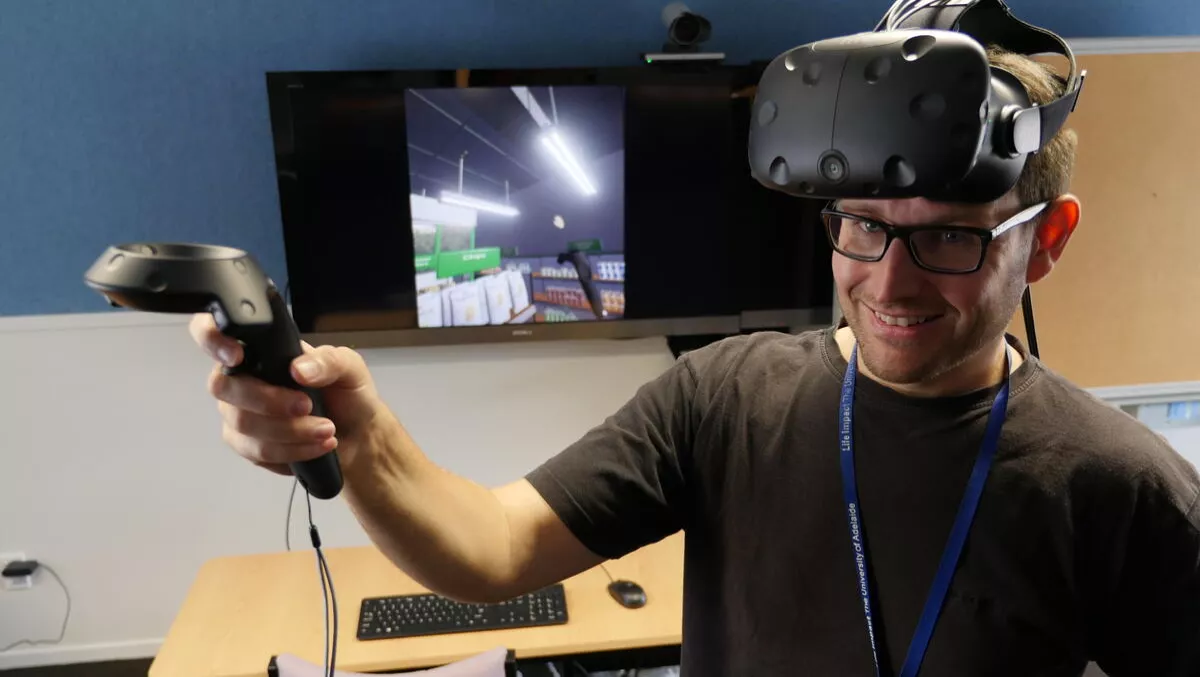
Virtual reality could be the future of market research
Massey University PhD candidate Alexander Schnack says virtual reality (VR) might be the future of marketing research – and he created his own business to take advantage of it.
As part of his doctoral thesis Schnack wanted to measure consumer responses to product packaging, but couldn't find a reliable way to do it. He then turned to VR to solve the problem and founded a new market research business.
"I found that people would report buying items when, in reality, they didn't. So I was looking for a different way of observing actual consumer behaviour when I came across VR," Schnack says.
"I wondered why no one was using it for market research. I thought the time was right to jump into this VR gap because the first consumer VR headsets were released just as I began working on my PhD.
With the help of a computer programmer and PhD supervisor Professor Malcom Wright, Schnack developed a VR system using an existing game engine.
By that stage, Schnack uncovered a more interesting research topic: Does purchase behaviour in a virtual environment closely resemble behaviour in a real environment?
"I've compared the results of desktop simulation and VR simulation and VR was better in terms of usability and telepresence, which describes the degree of involvement in a virtual environment. The higher the telepresence, the more realistic people's behavior will be," he says.
He believes that VR simulations mimic a real store. For example, you still have to bend down to pick something off the bottom shelf whereas with desktops, you just click on items.
"It offers a good trade-off between cost efficiency and realism. It's much better than rudimentary tools like questionnaires, which are cheap, and a lot less expensive than test market initiatives, which cost millions because they require retailers to reconfigure their stores.
He says VR is the future of market research, and companies such as Fonterra are also starting to experiment with it.
Professor Wright was impressed with the VR system, which Massey University's spinout company Consumer Insights then licensed.
"We have already run several successful studies and we are now working with clients both nationally and internationally," Wright says.
"Our business model scales up nicely, it's internationally portable, and there are many related VR services that we could launch. So, we hope to give VR shopper research a really strong push, and just see how far we can take it.
Schnack hopes Consumer Insights will also make VR-based research accessible to smaller firms.
"It offers marketers so much flexibility at a reasonable cost – they can test different package designs, changes in price, shelf positioning and labelling, store environment, colours, music and smells. You can also track the path people take through the store with heat maps, and where they spend the most time in terms of shelf positions and product categories," Schnack says.
Both Professor Wright and Mr Schnack say VR will also have an impact on online sales in the future.
"It will make shopping online an entertainment experience as retailers will be able to offer an immersive retail environment to build their brands," Schnack concludes.


